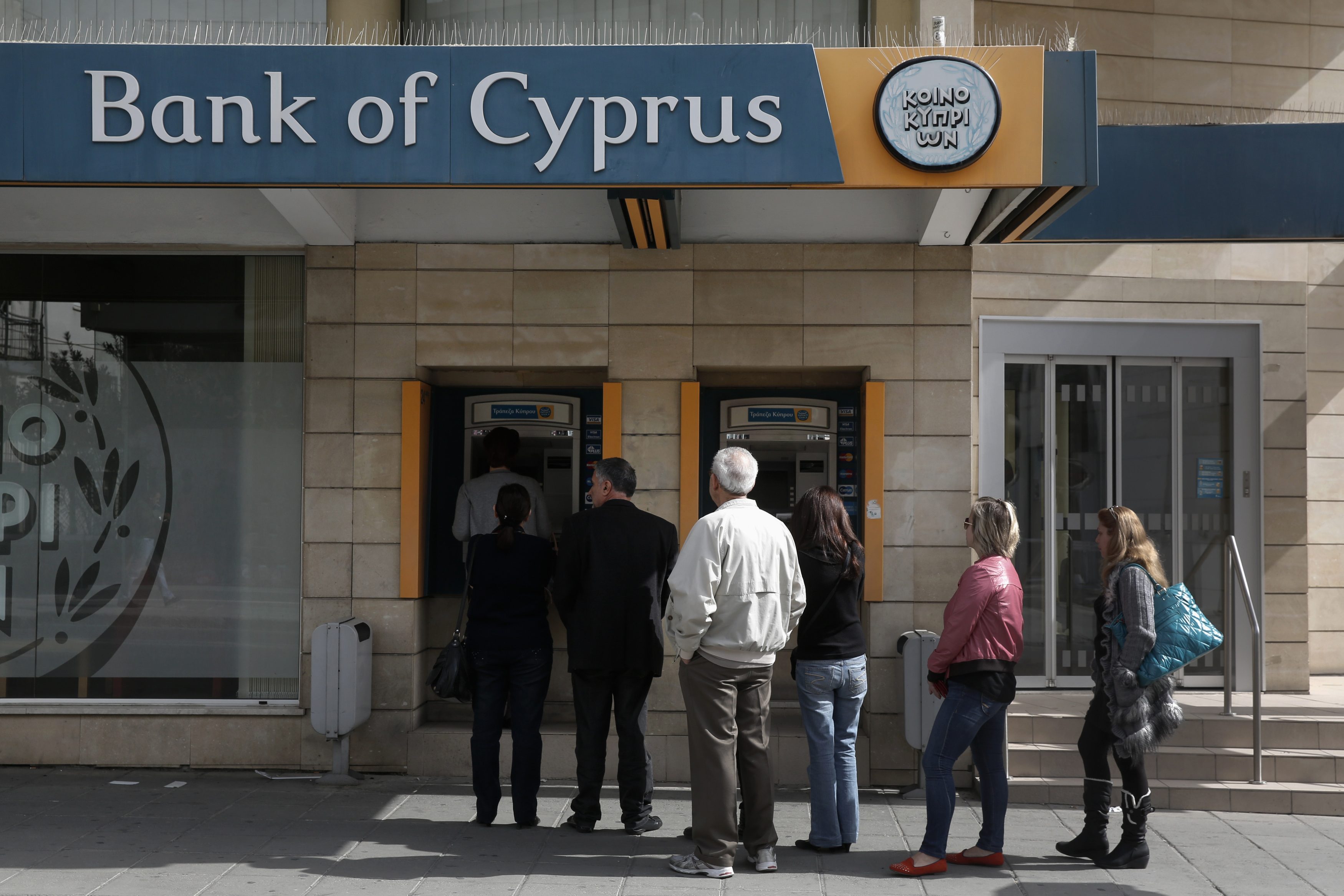CYPRUS BANKING CRISIS

Since 2008, has launched a first-class crisis on the Cypriot economy and society with the bankruptcy of a Cypriot bank Laiki in March 2013. This was the priming for the deterioration of the country's living standards with chain influences such as rising unemployment and deduction of the national income of the country as a result the corrosion of the social structure.
The European Union and the International Monetary Fund, looking at the unprecedented expansion of the Cyprus banking system, the heavy fiscal deficit and the increase in the country's public debt, decided that the public sector and the banking system should be upgraded.
In March 2013 the Cypriot bank Laiki and the other banks faced chain problems. The public bank was in the respirator and supported by ELA (emergency liquidity assessment). Two suggestions were proposed to the Cypriot Parliament. The first was bail-in for the bank to survive, something that it did not accept, with the result that the European Central Bank decided to close Laiki.
Since then, everything has started because the Cyprus banking system has been shrinking quite a lot. At the same time, the investors, ie the people who had their money in the Cypriot banks, had lost their trust. On the other hand, the borrowers with minimum incomes could not repay their loans.
A bank, in order to survive in principle, must have a strong capital adequacy, if it does not exist, it is certain that it cannot withstand. The non-performing loans at the moment are about 21.8 billion.
The bankers who did not take enough measures to deal with this crisis. The restructuring they proposed to their customers was completely utopian because they were based on predictions of the future, something that was wrong and was also rejected by the European Union and the financial services companies.
Due to the economic crises, many borrowers could not pay their loans. Many of them suggested to the banks to sell the mortgaged properties, but due to the excess of property in the market. the prices will be reduced due to competition. This will result a reduction in the capital that banks will receive, resulting in the loss of liquidity they need immediately.
In order to address this problem, the banks from the beginning when they see that one loan was not livableness, They have to invite their clients into a discussion and according their available income to restructure their loan so the borrowers with the a monthly instalment to cover the amount of interest on the loan and also part of the initial capital, this is considered to be the correct concept of Restructuring and not that which some banks suggested to borrowers to give them a monthly fee and the loan will be repaid for example in 200 years.
Also, the banks in their forecasts they take in to consideration and the borrower’s inheritors. This makes the situation more difficult.
All this combined with mistaken handling leads to immediate funding to improve the capital adequacy of the cooperative Cypriot bank. Until now the bank survives with government support but needs to find private resources by attracting foreign or local investors. The European Union gave a deadline by the end of April 2018 to find the solution.
So far all are in process, perhaps by the end of May the Cyprus government find a solution that will also address this problem. Public finances are in good process after the very good moves of the government. Now the banking system has begun to stabilize with financial investment companies to give good prospects to the Cypriot economy. Let us hope we are on the right way to ensure growth and prosperity of the Cypriot economy.